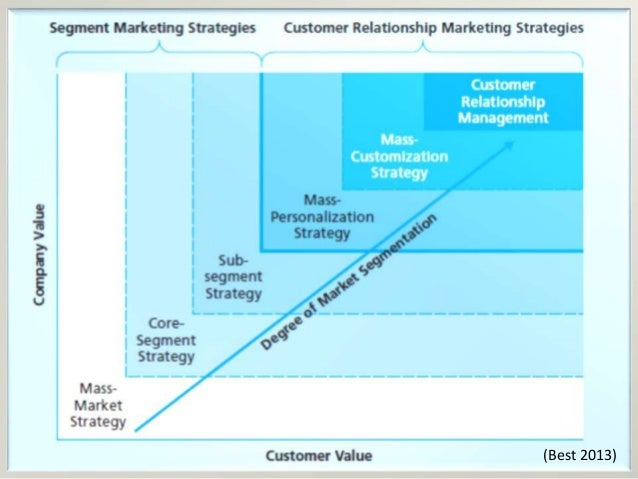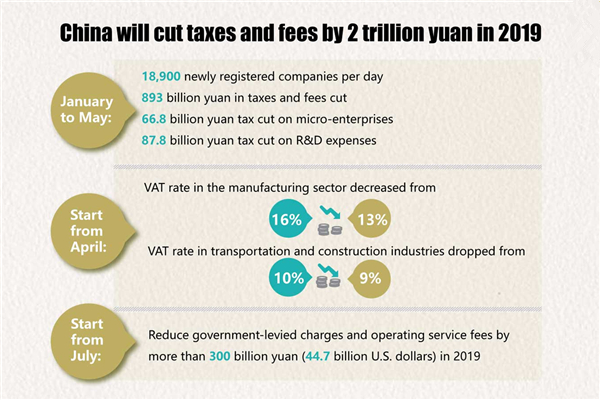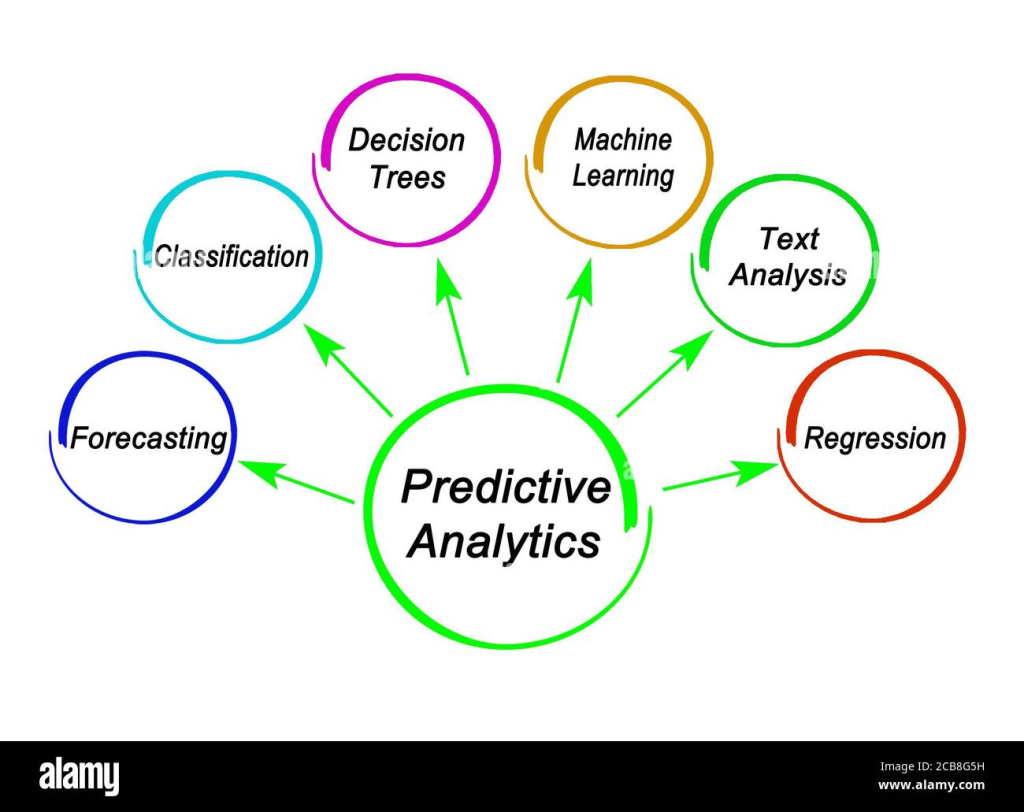Mass personalization marketing is revolutionizing the way brands connect with consumers, transitioning from a mere trend to a vital business strategy. In a landscape where tailored experiences are increasingly demanded, leveraging personalized marketing strategies is essential for enhancing customer engagement and loyalty. By utilizing data and insights, companies can refine their physical marketing materials, crafting meaningful interactions that resonate with their audience. Research reveals that brands adopting mass personalization practices can exceed revenue goals significantly and cultivate long-lasting relationships with their customers. As the market evolves, integrating artificial intelligence in marketing and offering omni-channel personalization becomes pivotal to delivering consistent, impactful customer experiences.
The concept of tailored marketing has gained traction in recent years, often referred to as customized or targeted marketing approaches. Businesses are now prioritizing unique consumer experiences, blending traditional methods with modern techniques to meet individual preferences. Such strategies not only enhance customer satisfaction but also drive brand loyalty and sales growth. As companies recognize the need for innovative solutions, the emphasis on personalized outreach and engagement tactics continues to evolve. Therefore, understanding the value of both digital resources and physical marketing elements remains crucial for businesses aiming to thrive in today’s competitive landscape.
Understanding Mass Personalization Marketing
Mass personalization marketing has rapidly emerged as a foundational strategy for brands aiming to enhance customer engagement and loyalty. By dynamically tailoring marketing efforts to fit individual customer preferences, businesses can ensure that they resonate more effectively with their target audience. Research shows that organizations implementing mass personalization are not just meeting customer expectations but are also significantly outperforming their competitors in terms of revenue and loyalty. In a world where consumers increasingly demand relevant experiences, this strategy becomes indispensable.
Moreover, the effectiveness of mass personalization extends beyond just the digital realm. With the integration of consumer data analytics, companies can predict buying behaviors, leading to personalized offers and communications that feel more relevant to each individual. This targeted approach can spur increased interaction, making customers feel recognized and valued. Therefore, adopting mass personalization unlocks new avenues for customer retention and long-term profitability.
The Importance of Perfecting Customer Engagement
Customer engagement is vital in today’s economy, where brands compete not just on products or services but also on the quality of relationships they build with their customers. Organizations focusing on personalized marketing strategies can achieve higher levels of engagement and loyalty by delivering tailored experiences that meet specific consumer needs. Engaging effectively means utilizing the data gathered from previous interactions to create custom experiences that resonate with each customer, thereby exceeding their expectations.
Furthermore, enhanced customer engagement paves the way for stronger brand affinity. When customers feel engaged, they are more likely to make repeat purchases and speak positively about the brand. This increased loyalty can lead to a higher customer lifetime value, ultimately benefiting the brand’s bottom line. Thus, the continual refinement of customer engagement tactics—such as personalized messages and support tailored to individual histories—remains essential for sustaining competitive advantage.
Leveraging Physical Marketing Materials in Personalization
Physical marketing materials remain a powerful tool in the arsenal of personalized marketing strategies. Unlike digital content, tangible items like customized brochures and direct mail provide a sensory experience that can resonate more profoundly with consumers. Studies have shown that consumers are more likely to respond to printed ads than digital ones, highlighting the importance of incorporating physical elements into a broader marketing strategy. Personalization in these materials can take various forms, from custom thank-you notes to personalized product offerings, making them highly relevant to the consumer.
Incorporating physical marketing materials requires thoughtful consideration of the design and messaging. Brands should focus on crafting clear and impactful communications while ensuring that the materials remain visually appealing and actionable. Furthermore, when companies leverage data-driven insights, they can tailor their physical marketing efforts more precisely, ensuring that they connect with customers on a deeper level. This strategy not only enhances brand visibility but also solidifies customer loyalty by fostering memorable interactions.
The Role of AI in Marketing Personalization
Artificial Intelligence has revolutionized the landscape of marketing personalization, enabling businesses to process vast amounts of data and derive actionable insights quickly. AI algorithms can analyze customer behavior, preferences, and feedback in real-time, allowing brands to craft highly personalized content that resonates on an individual level. This capability expands the range of marketing strategies available and empowers businesses to deliver timely offers that can significantly enhance customer engagement.
However, as companies lean more heavily on AI-driven strategies, they must navigate the complexities that come with it. The potential for misuse or overreach in personalization presents a risk of alienating consumers if they perceive the messaging as intrusive or overly tailored. Therefore, it is crucial for marketers to balance the benefits of AI with an understanding of consumer privacy and preferences, maintaining authenticity while leveraging technology for improved personalization.
Omni-Channel Personalization: The Future of Customer Experience
As consumers traverse multiple platforms and channels, the demand for omni-channel personalization has taken center stage. Today’s customers expect a seamless, personalized experience across all interactions with a brand, regardless of the platform they are using. Companies that successfully integrate personalized strategies across online, in-store, and other touchpoints are more likely to enhance customer satisfaction and loyalty. This cohesive approach ensures that customers receive relevant messaging and offers uniformly, which strengthens their connection with the brand.
Moreover, omni-channel personalization empowers brands to leverage insights gathered from various customer interactions to enhance the overall experience. By understanding how customers engage across different channels, marketers can refine their strategies to ensure effective communication. This holistic view facilitates a more relevant and tailored experience, addressing customer needs and preferences along their journey, ultimately leading to improved brand loyalty and engagement.
Crafting Effective Personalized Marketing Strategies
The creation of effective personalized marketing strategies hinges on a deep understanding of the target audience and their expectations. Brands must invest time and resources to gather and analyze customer data, which enables them to tailor their campaigns effectively. This insight-driven approach allows for the development of personalized offers that resonate, enhancing customer interactions while fostering loyalty and trust in the brand.
Additionally, successful personalized marketing strategies should not only focus on digital channels but also integrate physical elements, such as branded materials and experiential offerings. Multi-faceted campaigns that deliver personalized messages across various mediums can strengthen customer relationships and create memorable experiences. Achieving this blend of digital and physical engagement ultimately enhances campaign effectiveness and drives successful outcomes.
Balancing AI and Human Touch in Personalization
While AI offers remarkable opportunities for personalization, achieving a balance with the human touch is crucial for meaningful customer interactions. Over-reliance on AI can lead to impersonal experiences that may disengage customers. Thus, combining AI-driven insights with genuine human interaction can create a more authentic connection with consumers. Personal touches—such as handwritten notes or tailored customer support—can reinforce the brand’s commitment to individual customer relationships.
Moreover, using AI to support rather than replace human engagement can enhance customer interactions significantly. For example, AI can help derive insights to inform personal conversations, while human representatives can provide empathy and rapport that technology cannot replicate. Striking the right balance invites opportunities for enriching experiences that resonate deeply with customers, ultimately translating into lasting brand loyalty.
Maximizing Impact with Omni-Channel Strategies
Omni-channel strategies maximize marketing impact by providing customers with consistent, personalized experiences across all touch-points. Whether interacting online, in-store, or through customer service channels, maintaining a cohesive brand identity that resonates with consumers is paramount. This approach acknowledges the modern consumer’s fluid shopping behaviors and expectations, allowing brands to deliver tailored messages that cater to how and when a customer prefers to engage.
Moreover, the ability to track customer interactions across multiple channels allows brands to refine their marketing strategies continuously. By analyzing customer behavior and preferences in a holistic manner, companies can create more relevant content and tailor experiences that lead to higher engagement and satisfaction levels. Ultimately, the implementation of effective omni-channel personalization can set brands apart in a competitive market by reinforcing their dedication to meeting customers’ evolving needs.
Adapting to Consumer Trends in Personalization
To thrive in the era of personalization, brands must remain agile and responsive to emerging consumer trends. The rapid evolution of technology, customer behaviors, and market dynamics necessitates that businesses continuously iterate upon their personalized marketing strategies. Staying ahead of trends has become akin to anticipating consumer expectations, allowing brands to remain relevant in a fast-paced environment.
Additionally, adopting a customer-centric approach is paramount in tailoring personalized experiences. By actively seeking feedback and leveraging insights from customer interactions, brands can adapt their marketing efforts to align with changing preferences. This proactive stance enhances brand loyalty as consumers appreciate when their voices are heard and valued, reinforcing their connection to the brand.
Frequently Asked Questions
What is mass personalization marketing and why is it important?
Mass personalization marketing refers to strategies that tailor marketing efforts to individual customers based on their preferences and behaviors. It’s important because it can significantly enhance customer engagement, boost loyalty, and ultimately drive higher conversion rates. Research shows that brands excelling in personalized marketing strategies are more likely to surpass revenue goals, making it a key component of modern marketing.
How can personalized marketing strategies improve customer engagement?
Personalized marketing strategies enhance customer engagement by delivering relevant content that resonates with individual preferences. By utilizing customer data to understand buying habits and interests, brands can create tailored experiences that make customers feel valued, resulting in deeper connections and increased brand loyalty.
What role do physical marketing materials play in mass personalization marketing?
Physical marketing materials play a crucial role in mass personalization marketing as they provide a tangible way to engage customers. Items like customized brochures, direct mail, and personable notes can leave a lasting impression, with studies showing that 80% of consumers respond to printed ads, highlighting their effectiveness in a predominantly digital world.
How does AI in marketing contribute to mass personalization?
AI in marketing contributes to mass personalization by analyzing vast amounts of customer data to create dynamic, hyper-personalized content. This technology enables businesses to deliver real-time experiences tailored to individual preferences, enhancing overall customer satisfaction. However, it’s essential to balance automation with customer comfort to avoid overwhelming users.
What is omni-channel personalization and how does it relate to mass personalization marketing?
Omni-channel personalization ensures a consistent and cohesive customer experience across various channels, including online platforms, in-store interactions, and physical marketing initiatives. It integrates mass personalization marketing strategies to provide seamless transitions and tailored communications at every touchpoint, enhancing customer engagement and loyalty.
What are the key benefits of using personalized physical marketing materials in campaigns?
The key benefits of using personalized physical marketing materials include higher engagement rates, the ability to convey brand messages more meaningfully, and a stronger competitive edge. These materials resonate more with consumers, fostering a deeper connection and improving retention, compared to solely digital campaigns.
How can businesses effectively balance dynamic, AI-driven content with traditional marketing formats?
Businesses can effectively balance dynamic, AI-driven content with traditional marketing formats by complementing advanced technologies like AI with meaningful, human-centered communication. Ensuring that the personalized experiences do not invade privacy or become overly intrusive is crucial. This approach builds trust while utilizing the strengths of both digital innovation and traditional physical materials.
Why is customer data critical for mass personalization marketing?
Customer data is critical for mass personalization marketing as it provides insights into consumer preferences, behaviors, and interactions. This information allows brands to create tailored marketing strategies that are relevant to individual customers, thereby fostering deeper engagement and enhancing loyalty through informed personalization efforts.
| Key Aspects | Details |
|---|---|
| Mass Personalization Impact | Transforms brand engagement, fosters stronger customer connections. |
| Consumer Demand | It’s not just a trend; 81% of customers prefer personalized experiences. |
| Revenue and Loyalty | Brands excelling in personalization are 48% more likely to exceed revenue goals and 71% more likely to report improved loyalty. |
| Importance of Physical Marketing | 80% of consumers respond to printed ads compared to 45% for digital. |
| Key Trends in Mass Personalization | Includes data-driven customization, tech integration, and omni-channel strategies. |
| Caution with AI | Over-reliance on AI can lead to biases and customer alienation. |
Summary
Mass personalization marketing is pivotal in today’s competitive marketplace. It enables brands to not only meet but exceed customer expectations through tailored experiences. As consumers increasingly demand personalization, brands that embrace this trend can improve engagement, loyalty, and revenue, making mass personalization marketing a fundamental strategy for modern businesses. Moreover, integrating personalized physical marketing alongside digital strategies can significantly enhance customer interactions, ensuring a cohesive brand experience across all platforms. Therefore, businesses must balance innovation with traditional marketing methods to maximize their impact.



